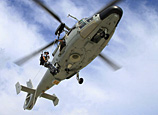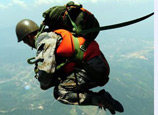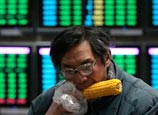
Shanghai police officer Yin Yanlin has seen it all.
After 16 years with the city's narcotics cell, Yin watched Zhang Ziqiang, a millionaire in the 1990s, blow his wealth after becoming an heroin addict; saw Lin Yanli, 18, sink into the drug world as an "ice girl" providing sex services for men taking methamphetamines; and saw Wang Zhongwei, a young man in his 20s, diagnosed with schizophrenia after taking heavy doses of ecstasy at nightclubs.
And the number of addicts are only going higher, Yin said, shaking his head in despair.
Last year, Shanghai police dealt with 3,080 drug cases involving 3,436 suspects, right from dealers to manufacturers. They seized 467 kilograms of drugs, including heroin, methamphetamines, the depressant ketamine and marijuana.
"The increase in trafficking is fed by strong profits for illicit drugs," said Yin, now section chief of the Shanghai Public Security Bureau Narcotics Control Division.
Drug explosion
Yin, 37, has been with the division since it was created. As he moved up the ladder from investigator to section chief, he witnessed the explosion of the drug scene in Shanghai. It has become "very serious and getting very violent," he said.
Yin and 12 investigators on his special squad employ a combination of new technologies and old police procedures in their uphill battle against the drug world.
It is not uncommon for Yin and his men to shadow a suspect over a long period of time, watching his activities to find who is buying and who is selling, who are the flunkies and who are the kingpins.
"It is hard to crack drug rings because every drug dealer behaves somewhat differently," Yin said. "We need to be ready for action at all times."
In March, Yin nabbed a drug dealer in Shanghai and flew the same night to Shenzhen to track down the big boss. He said he hardly slept for five days during the entire operation.
"I always considered myself energetic on the job, but after that one, I felt I was getting too old for all this," Yin said, half-joking.
Yin, who is about 1.8 meters tall, looks very serious but is an easygoing person. He works out of uniform, wearing a polo shirt, jeans and sport shoes. He is tanned and crew-cut.
He served for some time in 2003 in the southwestern province of Yunnan, part of a drug smuggling route from neighboring Thailand and Myanmar. It was a bittersweet year: his daughter was born that year and he saw for the first time an anti-drug cop shot during an operation.
"Drug abuse is always accompanied by violence - guns, knives and speeding cars," Yin said. "If drug dealers happen to be AIDS or hepatitis carriers, they will often scratch or bite an arresting officer out of spite."
A dangerous and often thankless job, Yin said he never thought about the dangers until he had his own family. Some colleagues had changed jobs because their families did not want them spending long hours at work and in life-threatening situations.
"Drug dealers are always desperadoes," Yin said. "They will resort to any means to resist police, knowing there is the death penalty waiting for them."
Yin said the only way to defeat drug dealers is to be braver and smarter.
He doesn't like to talk about heroes in his team because that usually refers to officers injured or killed on the job.
New synthetic drugs
Despite the tough police stance, the number of drug users is still growing by 10 percent a year in Shanghai. Drug cases are becoming more violent and the array of illicit narcotics expanded by new synthetic drugs.
Last year, Shanghai police handled 11,400 more drug users with the list standing now at 67,000. The police have now established a system to keep an eye on drug use, encouraging public to tip them off.
Yin said the lure of drug-taking is strong among young people who want to "fit in" with their peers. Parents' warnings about drug use are usually ignored.
"I wish I could tell every child that there's nothing glamorous about taking drugs," Yin said.
"It can only ruin you and your family. Just say no. At the same time, parents need to do more to take the responsibility for their children and give them guidance and understanding."
Many drug addicts caught by police end up in rehabilitation centers.
The success rate is dubious, but at least it's an effort to get them back on a normal track, Yin said.
Shanghai now has up to several hundred police involved in anti-drug activities. He hopes the force will be able to bring the drug situation under control.
















 Surviving climber safe at home
Surviving climber safe at home


![]()
